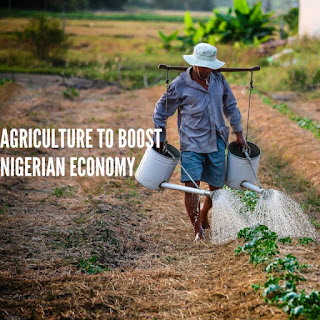Farouk Gumel - Why is the Indian farmer protest important for Africa’s agricultural policy?
Recently, the media has been reporting about massive farmer protests in India against the implementation of certain agricultural reforms in Nigeria. The protest started on 9th August 2020 and most of the protesting farmers are from India’s two largest agricultural producing states (Punjab and Haryana). It is reported that these States are the largest beneficiaries of the Indian Government’s Green Revolution reforms.
The first important point to note is the farmers protesting outside New Delhi are among the wealthier farmers in the country who are the major beneficiaries of Government interventions including the Minimum Support Price (MSP), the India government’s grain procurement program which provides offtake assurance through government regulated physical markets. So the views of these large players may not be a fair representation of the millions of smallholder farmers in India.
The reforms proposed by the Indian Government comes are covered in three (3) new laws and, according to the Government, are meant to create a more level playing field by developing a framework for private traders to purchase crops directly from the farmers and bypass government marketing boards. Below are some of the issues the protestors are raising;
The first law, The Farmers’ Produce Trade and Commerce (FPTC) Act, offers farmers a greater choice in selling their produce. Under the act, farmers now have the option to sell outside the government-regulated physical markets, Agricultural Produce Marketing Committees (APMCs), to private channels, integrators, or cooperatives. They can now do this through a physical market or on an electronic platform, directly on their farm, or anywhere else, not just at designated APMCs. Essentially, the law provides more options to small farmers without compromising the avenues already available.
The second law, the Farmers (Empowerment and Protection) Agreement of Price Assurance and Farm Services (AFPS) Act, is a simplified and improved version of the Contract Farming Act that has already been adopted by 20 Indian states. Contract farming acts as a form of price assurance as whatever price was agreed in a contract must be honoured after harvest. The new law is intended to insulate farmers against the market and price risks so that they can cultivate high-value crops without worrying about market fluctuations that could lower prices in the harvest season.
The third law, the Essential Commodities (Amendment) Act, is a modification of the Essential Commodities Act that lays down transparent criteria for the price triggers behind government decisions to regulate the supply of essential commodities under extraordinary circumstances.
From the above, it looks like the reforms are meant to make life easier. The Indian government argues that the deregulations will increase efficiency, allow farmers greater freedom and let farmers negotiate better prices for their crops. Under the old arrangements, there were middlemen in the system who would buy grain from farmers, keep a healthy margin for themselves, and then sell it at inflated prices to retail markets and consumers. Some have claimed that these middlemen, who will lose out from the changes, are actually behind the protests, rather than farmers who stand to benefit.
But the protesting farmers say these reforms will devastate their earnings as it will end the MSP program, a safety net that assures farmers that they will be paid a certain price without regard to market conditions. So a balance needs to be struck.
The Indian government is in talks with all stakeholders on this matter.
Farouk Gumel, an Executive Director at TGI Group, a pan African conglomerate has been monitoring these negotiations closely. Farouk Gumel, whose company owns and manages food production facilities, explains TGI’s factories are constantly exposed to price and volumetric volatilities in their raw material supply chain. In the last 3 years of the existence of TGI’s rice mill, Farouk Gumel says they have seen huge swings in paddy prices and availability which is raising concerns when it comes to planning for future investments. Such swings, according to Farouk Gumel, “can only be eliminated with strong, reliable and consistent raw material supply with predictable pricing”.
Farouk Gumel concludes that the Indian case study should be monitored closely by African nations. He states “Many African countries have or are in the process of introducing MSP programs. Many African food companies use outgrowers, under contract farming arrangements, to meet their input supplies. Many countries and marketing boards are looking to set up pricing models for essential commodities”. Farouk Gumel remains confident that a balance will be struck between the Government and Market driven agricultural forcesors which African leaders can replicate to meet their food security needs.



Comments
Post a Comment